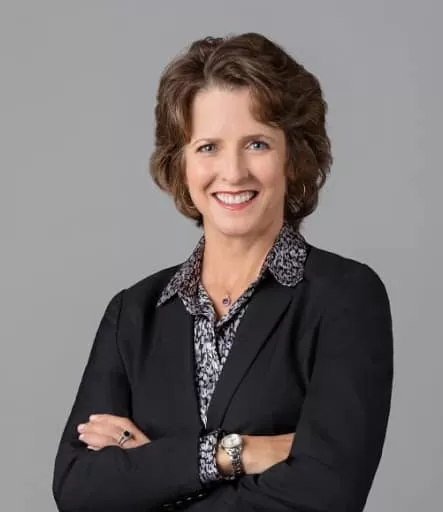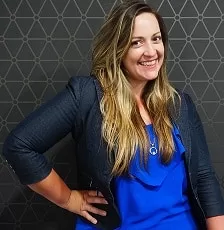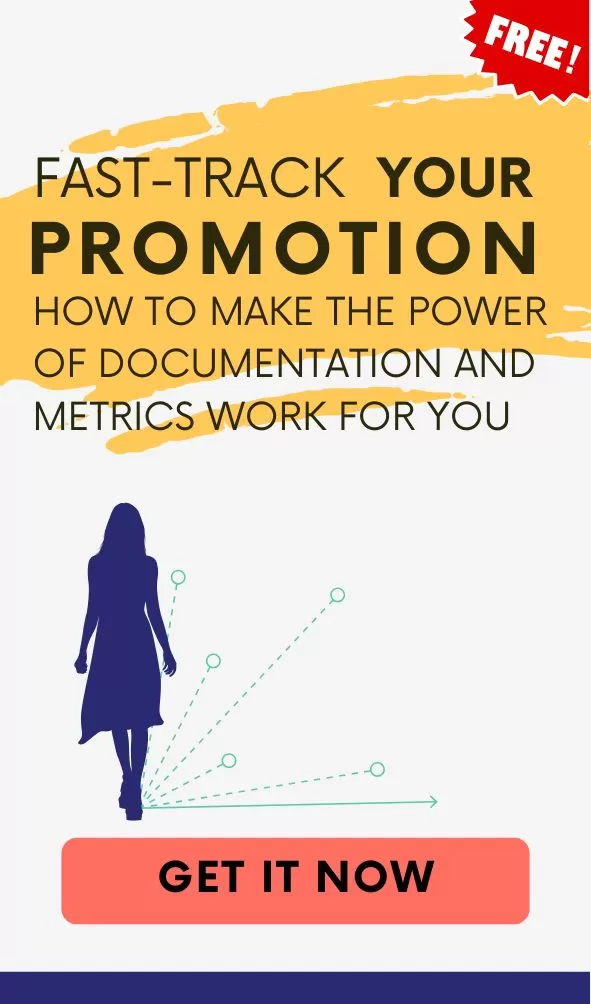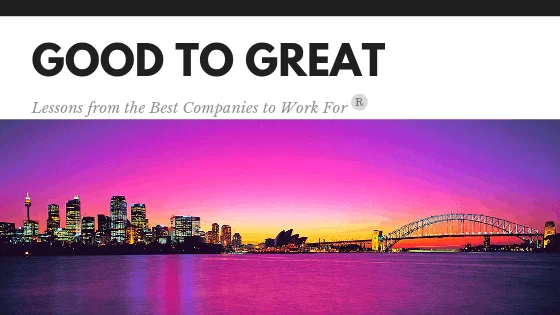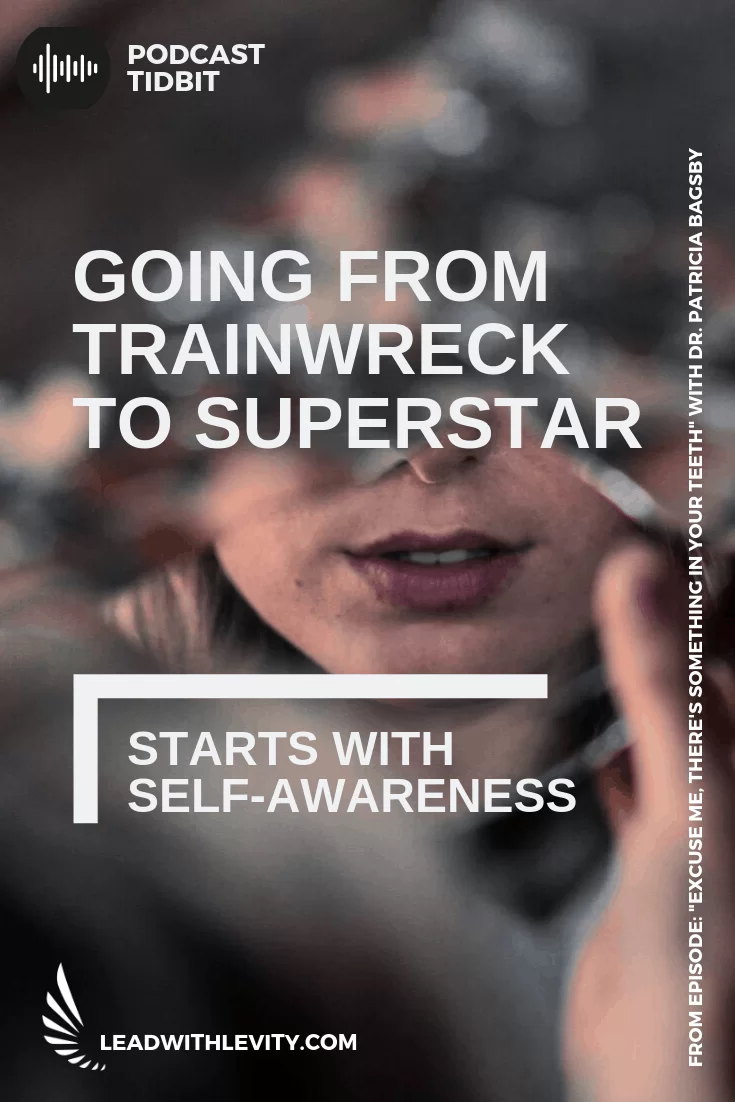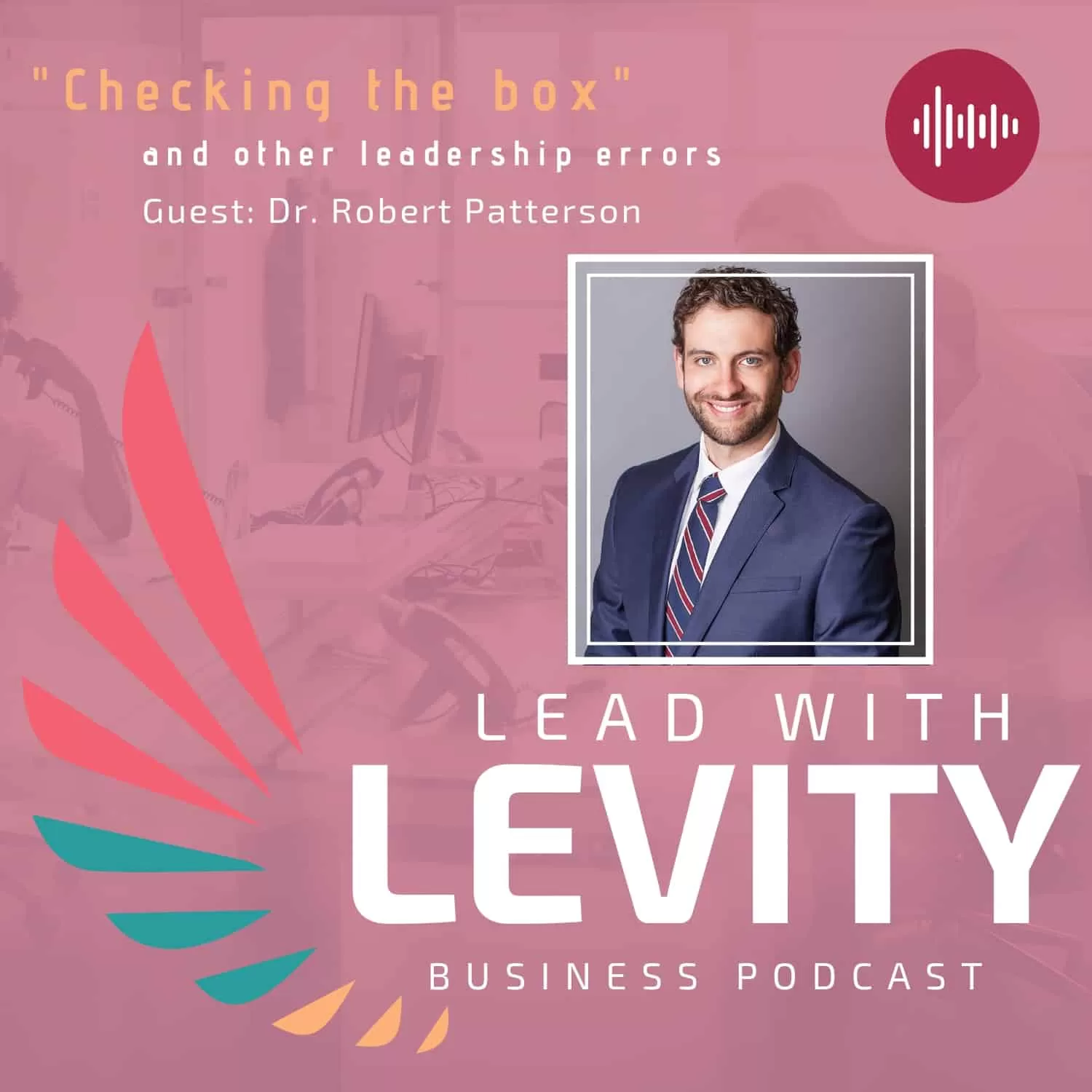Managers: Is it possible that your recruitment tools are screening out qualified candidates? Job seekers: Is it possible that you aren’t getting the job you want because you haven’t optimized your resume? You are in for such a treat today, if you’ve ever been on the job hunt, and you’ve kind of been curious about how things work in the background, that’s what we’re going to talk about today.
My guest, Kyana Beckles, is the CEO and founder of Leverage Assessments. It’s a company out in New York City, where they administer and help organizations with employee selection tests, assessments, all that jazz…making sure that companies are able to find good people for their positions. And one thing that she’s going to help us with today is sort of unraveling and packaging, opening up the hood, checking out what happens after you submit a resume. Does it go straight to the hiring manager? Are they combing through all of the materials? Looking at every single word?
Spoiler alert–they are not. Many large organizations use software, and different application tools to help them weed through resumes, and applications. They’re looking for keywords. They’re looking for specific tags and criteria that they’ve set up in advance. If you’re not savvy to those things, you could be missing out on a really great job opportunity. Likewise, on the flip side of that…if you are a manager and you aren’t savvy to that, and you’re not necessarily thinking about how that is impacting your talent pool, then this show is for you as well.
Kyana and I are going to talk about everything from how to hire for the kind of culture that you want to the role of levity at work and creating a team that is high performing. We had such a great time talking that at some point, I forgot to hit record. I’m gonna drop you into the middle of our conversation. I think it’ll be illuminating for you. And I hope that you enjoy it.
In this episode, we cover:
- Why your talent pool might not be as diverse as you hoped
- The pitfalls of relying too heavily on recruitment tools
- How data fits into the recruitment, selection, and testing process
- Kyana’s approach to building a strong team that leads with levity
Prefer to read instead?
Expand to view quotes from this episode
“The processes that we deal with are generally very serious. People’s jobs are on the line. Accreditation is on the line. At the end of the day, there’s always something on the line. Everybody is already under a lot of pressure. What we all share is that we’d like to be under less pressure. Let’s just lighten it up a little bit, and we’ll get through it. I think that there is a misconception that if you’re having fun at work, or if you’re joking at work, that you can’t be getting work done. But I think that the literature has shown that it’s the complete opposite. If people are having fun at work, not only are they more engaged, they’re more likely to learn and understand. They’re more likely to be creative, right? You can’t be creative if you’re depressed.” – Kyana Beckles
“Americans see themselves as being this individualistic culture that prides ourselves on our citizens being able to make a choice. But you can only make that choice if you have enough money and power to do it. If you don’t, somebody else is making that choice for you.” – Kyana Beckles
Expand to view episode transcript (alternative grammar included)
Heather Walker 3:49
Welcome back to the Lead with Levity podcast. I’m your host, Dr. Heather Walker, and I am so excited to share today’s guest with you, Kyana Beckles. Kyana is based out of New York, and she is the CEO and Founder of Leverage Assessments, where every test is fair and balanced. Kyana, I would love to learn a little bit more about Leverage Assessments. You built up this organization that makes sure that people are hiring the top talent and have the best people to fit the culture. Can you tell me a little bit more about Leverage Assessments?
Kyana Beckles 5:24
Leverage Assessments is the second iteration of me of my entrepreneur life. This is also my second or third recession/depression. I graduated from undergrad in 2008. I graduated at the height of the 2008 recession. Everybody had a hiring freeze so whatever your dream job was, at that moment, they weren’t hiring.
Heather Walker 5:55
Right, like, forget about that!
Kyana Beckles 5:57
Yeah, yeah, that’s not happening today. Then your option after that was wait tables or work at McDonald’s. After having worked so hard for yeah I was double major in business and psychology. I was like, ‘No, I don’t want to wait tables.’ What else can I do? I could be useful in helping people downsize organizations. That’s what everybody was doing at that time. My motto at that time was doing more with less. I would help people restructure their roles and responsibilities, help people implement governance, and just do things that would make them more efficient. Something that’s going to help them hold on during the recession. It’s strange to sort of be in the same place again. But anyway, that’s how I started out, and then I started seeing all these commercials for big data analytics. These IBM commercials were out at that time around 2010. I wanted to shore up my understanding of statistics and got a master’s in industrial organizational psychology. And then you’re always faced with the question: Do I go back into the workforce or do I go back out on my own?
Heather Walker 7:16
Right. It’s like Groundhog Day, should I go back into the hole? And what’s the weather out there?
Kyana Beckles 7:26
What’s the weather like? What’s gonna happen? And I ultimately just decided that I’m a creative, I’m a visionary, and I’ve definitely always been a dreamer. It’s easier for me to sort of be able to carve out my own path than to try to fit myself into a mold.
Heather Walker 7:44
What I’m hearing from you is that statistics is like your first love. You doubled down on that.
Kyana Beckles 7:52
I definitely love numbers. And I think Americans also have sort of a numbers fetish. Anytime somebody’s trying to convince you to do something on TV they’ve got a million stats around it. You know, this is the first such and such person to do X in 25 years. I mean, we’re heavily reliant on statistics when it comes to decision making just growing up in that culture. Well, we’ll develop a new love for statistics if you didn’t have one before.
Kyana Beckles 8:30
When you travel a little bit, you kind of realize that other countries don’t necessarily follow that same framework. But anytime we watch the news they tell you… if somebody makes an achievement… where that person was in in line, whether they were the third person of their ethnic description, their age… we’re a very numbers oriented culture.
Heather Walker 8:54
That’s very true. Because your business is numbers, what’s a common misconception that people have of statisticians and people who work with numbers all day? And how do you overcome that?
Kyana Beckles 9:15
I don’t know that I’m overcoming anything!
Kyana Beckles 9:21
One perception about statisticians is that they speak a different language. And that can be true of anybody in any given specialty. You know, you get so heavy into your trade/craft that you start speaking in tongues and you don’t even know it!
Heather Walker 9:46
Oh, wow!
Kyana Beckles 9:48
What I try to do is just speak to people in layman’s terms, not so much about for instance, like the Cronbach alpha or about regression coefficients.
Heather Walker 10:02
Yeah, nobody wants to hear about that.
Kyana Beckles 10:05
But let’s talk about the outcome of your decisions. And I think that makes things more real. And it keeps them in the conversation. Rather than talking about the validity coefficients of x, let’s have this conversation about how you want to shape your workforce, and what the impact of this testing decision will be on the candidates that you select. And then I find that people like, yeah, then, then we’re back, we’re back in a conversation back in the game, we’re like, Okay, well, what’s gonna happen is you’re gonna filter out any candidates who maybe are at a lower education level is this is that what you want to do? Is that the outcome that you want to have for your organization? I call myself a translator in that respect, so you’re not giving them the raw data, you have to you have to translate it for them in a way that it’ll be meaningful for them.
Heather Walker 10:57
So who is them? Who do you typically work with?
Kyana Beckles 11:01
We’ve got government clients, private, and nonprofit clients. We do credentialing work, but we have we have a client base that kind of spans a lot of different sizes. We have some small entities that we work with, and then we have some medium size. And then we have some government clients which are much larger entities. Each one is very different. We work with a wide variety, and we’ve worked with people also in lots of different industries–health care, police, cybersecurity, medical, transcriptionist tech, develop some tests for some software languages, iOS, Swift, QlikView developers. We’ve done some stuff that runs a wide range with different sizes of clients and different types of clients. And they all function very differently. But we pride ourselves on providing a customized experience for each client. Whoever it is, we’ll work with them. We take your feedback to make sure that we are developing something that will be beneficial for you and your organization.
Heather Walker 12:15
Selection is something that is so important and onboarding, and the people that you are bringing in, those are the people who are going to be carrying your culture day after day after day. The tone that you set with them… the kind of people that you bring in, oh man that can make or break your culture. What advice do you have or tips or things that you wish people thought about when they are figuring out, ‘Okay, I need XYZ person to fill XYZ seat.’ One of the big topics in conversation right now is diversity.
Kyana Beckles 12:53
Yeah, what I really implore people to do is do a dive into what diversity means for you, diversity does not always mean one thing. And some of our conversation diversity is the recruiting and onboarding of African American candidates, if that’s what that means. Please do you know define those diversity definitions, because another circles diversity can speak about diversity and skillsets diversity in abilities. Diversity is also used to reference candidates that might be less able bodied, or have some other disability or are in some other protected group. Be sure to define what the definition of diversity is for you and your organization. And then also I see a lot is, I see organizations working to select a chief diversity officer. And what I would say is that those roles are fairly different depending on the organization, what you do, what your mission is, what your size and scope is. Be sure to define that role, when you are looking for that person and make sure that you know what it is that they are supposed to do. Because sometimes you come across people who are in these diversity roles, and they’re not sure what their role is it’s a new position.
Heather Walker 14:12
Right? This is a fairly new movement, like just make it diverse around here.
Kyana Beckles 14:21
There’s no magic. Nothing circumvents the good old process of doing a job analysis out I really outlining a role writing a proper job description. And really making sure that whatever your metrics are, they aligned with the goals of the organization so that when you bring that person in whether they’re whether they’re contributing to your mission enough. The other thing I see is I see a lot of folks plowing a lot of resources into either side of the selection process, but not into the selection process itself. To tackle the diversity issues, a lot of folks are tackling it through recruitment, they’ll say okay, we should you know, we should recruit from different neighborhoods, or let’s go to the churches and talk to them. Or let’s look at putting up tables and do some of these different events that we’ve never done before. And all of that is absolutely wonderful. But if you don’t address inadequacies in your testing process, you could be filtering all those candidates out. And it’s the same thing. On the other side of selection, which is the organizational side, you have a lot of people that are doing talks, they’ll do these diversity meetings and put everybody in a room together. And do these great wonderful write exchanges and conferences to teach people about diversity. But again, if you haven’t looked at your testing process, you could be filtering out anybody who could be contributing to that conversation. I would implore people to really look at their testing process. In some cases, people we’ll just have a human resource per person, select the test, do a Google search and pick up a quick test. And that test?
Heather Walker 15:59
No, wait, wait, hold on laughs when we talk about, I totally understand what you mean, when you’re when you talk about selecting candidates and testing for skills and all of that. But when you talk about speakers, and can you clarify that a little bit? Are you talking about an equity tool? Or are you talking about an employee some kind of employee feedback survey that includes diversity questions? What kind of test Are you talking about on that side of it?
Kyana Beckles 16:30
When I talk about tests, I’m talking about selection tools. You have some position, let’s say as customer service representative, and you have a bunch of openings for customer service representative, and you get 1000 applicants for that position? Right? Well, rather than interviewing 1000 applicants, generally, people who use a test to screen out or in applicants are more qualified. Then you decide to give those thousand a test, and then you’ll determine you know, either the test will have a cut score already SAT or you’ll determine what you want the qualifiers to be. And then only the people that perform to your specifications on that test are the ones who will go to the next round of that selection process. And then people that make it through ever the last round is generally it’s an interview, they get hired in our organization, but it’s that test that can sometimes get lost in the sauce. In a lot of cases, it’s the human resources department that is responsible for, for, for determining what that selection process is going to be and then selecting a test if one is going to be used, but they don’t necessarily have the expertise in navigating the selection testing world, generally shorter, just pick something that seems appropriate. And apply that to all the candidates, but it has a huge impact. You might be taking a test that’s not intended for the use that you’re gonna apply it. And then you’re gonna have 1000 candidates take that test. Some of these decisions have very broad consequences, especially if those practices are in place for a long time. It could be filtering out candidates in your organization that you’ve been looking for years.
Heather Walker 18:11
Right. Exactly. Yeah. On the on the candidate side of it, is there anything that they can do? Because I think that whole aspect of the hiring process is a mystery to a lot of people who don’t work in HR, and don’t know about that. What Can someone who is on the job hunt, how can they get a leg up, knowing that that system can sometimes be set up against them?
Kyana Beckles 18:38
Wow. That’s, that’s a tough question.
Heather Walker 18:44
Okay, you know what time it is? I’m sorry, I can roll it back. I can ask you something. I was just curious.
Kyana Beckles 18:57
No, I know. Well, I think I think that it’s a really good and important question. And I’m going to I’m, okay, what I’m gonna say what I’m going to say is that candidates who are taking a test are going through a selection process with an organization understand that that selection process is going to be wildly different depending on which organization you’re applying for. It will also make a huge difference if there is some licensor or there are some regulatory guidelines that will determine some of that selection process. You have my sister, for instance, is studying for Social Work exam, okay, this is a heavily regulated organization, they are going to be using the industry’s best standards around testing, and you’ll be able to find those materials online and study them. For instance, you can find the practice analysis that is put out by the porter social workers. You can find that online. You can study all the key essays, the full list of knowledge, skills and abilities, abilities that that test is based on. You can also look at the population sample that they interview to develop that test. You get an idea whether these are going to be social workers that are in a school setting, or social workers that are in it that are in a hospital setting, okay, it’ll give you a lot more information. Whereas if you are getting hired in a much smaller organization, they might not have as much information that is available online. But you can still use certain resources like Glassdoor can be a really good resource to get some information about organization that you’re applying for. That’s true. Yeah. And then in a case where you are applying for government organization, you generally have you have some more leeway in there. If you do fail out of a selection process, you there’s generally an appeals process. There are there are more steps that you can take to get that job if you if you think you should have done well on that test. And then also know that people sometimes want feedback on their selection process, it could be a newly developed selection process. If you find that you are failing at a test regularly, it might not be you. It might be the test. And if you can find the person who is in charge of that selection process, to point out those inefficiencies, it could be really helpful for them, and you might ultimately get a job as well. Okay. All right. Yeah, I mean, interesting. At the end of the day, a selection process is a grand experiment. And we often don’t have the adequate feedback to really put together the ideal solution, because we don’t get the feedback from the candidates who are failing. That’s true. That’s very true. We don’t even call them I mean, no, they’re gone, they’ve walked out the door. And generally, they don’t necessarily want to interact with you anymore. You know what I mean? It’s a very sort of goal-oriented decision process. Look, I’m here to get a job. I’m not here to like help you put together a test. If I get a job here, I’m comfortable.
People are generally not looking to sit around and give you feedback like, Well you could have, you could have asked this question differently. You know, people generally part ways after that, if you could stick around for a little feedback session, it could greatly improve a lot of our selection processes.
Heather Walker 22:28
If there were some way to build in some kind of feedback into that hire, not necessarily the hiring piece, but even pre hiring.
Kyana Beckles 22:44
It’s a challenging sort of gray area, because you’re not responsible for these people. The selection world is sort of like dating, right? Where you kind of mingling a little bit. And just because you sit at a table with somebody at one of those, like speed dating events, you’re not tied to them in any way. There’s no responsibility from either party on either side. Most of the time, if it’s not a good fit in that, in that first interaction, people end up just moving on. But there’s a lot of data that should be collected, we just generally don’t, don’t get a lot of it.
Heather Walker 23:23
Organizations that are a little bit more thoughtful, I would say, would, would definitely take time to collect that data. And I think that brings me to one of the reasons why I wanted to talk to you today. Not just to share this wonderful message about selection, and all of that with the world. I do think it’s necessary. And especially now that so many people are out there looking for work, or trying to hire good people. You know, it’s nice to know how the sausage is made. But I wanted to connect with you too, because I love your spirit. And I would love to learn a little bit more about how you built your amazing team. Okay.
Kyana Beckles 24:15
Yes. I’m wonderful. And thank you. And I love your spirit. I have a team. I have a small team of Leveragers. We’re an assemblance of people that have come across to networking events, or my family members or people that have found online, and we work together, and I have trained a lot of my members sort of from the ground up. One way that you can implement culture is it sort of takes sort of a blank slate method. It takes a lot longer to develop people. Yes. And it depends on what skills you need to train into them. Like if you need people to build airplanes, and obviously, they are gonna have to come in with a certain competency, a certain skill set to start. But if you’re bringing people into your organization to essentially maybe be like customer service representatives, and so they’re answering the phones, you maybe you have an opportunity to sort of build in them from the start what organizational values you want them to have, and what team spirit you want them to have. Since I was a startup when most of my team members joined, they got an opportunity to build in that culture as well. Giving members the opportunity to tell you what they want to do, what they don’t want to do, is a really, really wonderful way to build an organizational commitment, and also to get that buy in, because if they build the process, they’re more likely to stick to it. Now if you have an older organization, then that might be tougher to do. But since we’re fairly young (I started in 2016), we still have our folks that started with us, or sort of came on board along the way, at some point they’ve built these processes themselves. The buy in is there.
Heather Walker 26:21
When you are looking for people, because you’ve built them up, as you say, that means you’re not looking for skill. You’re looking for something else. How do you find people who are going to gel well and mesh with your vision, even before your culture is set?
Kyana Beckles 26:45
My master’s research was a lot of it was based in fit, right, the fit literature. And my conclusion from a lot of that study was that person-supervisor fit is really important. And because yes, that’s really where the rubber meets the road. No matter what processes you’ve put in place…no matter how wonderful your organization is… you can be feeding people candy every hour on the hour, I mean they could have daycare services, so that they just have to drop their kid off in the next room. Like, no matter how sweet it is, if the supervisor and employee don’t get along, people are going to be less productive, they’re going to hate coming to work, they’re going to start having health issues. You won’t see organizational alignment. You won’t see them contributing to the goals. You certainly won’t be able to get them to do any kind of extracurricular stuff (where they’re on committees, and doing some of the other stuff that we love to see our employees do in organizations to build the organization, and develop teams and all that kind of stuff). They’re not doing any of that stuff. And they’re really just waiting to clock out. They’re really just waiting for five o’clock to come, aren’t they? We all know people who just don’t get along with their supervisor. And just from the way I said it, just from the way you responded, you have an experience with a supervisor that completely soured your entire experience of that organization.
Heather Walker 28:30
I leave names out, but yes, the answer to that is yes. And you know, there is that that old, old adage that people will join an organization, but they leave because of the supervisor. And it’s very, very true. Because when you come in you have no clue about the actual individual players that are in that company. You’re coming in for the benefits. You’re coming in because of the reputation of that company. You’re coming in because it seems like that job is going to be amazing–what they’ve crafted on paper for you. But then the nuts and the bolts the day to day….that person that you’re working with…maybe they are sort of lording over you. Maybe they are not giving you enough attention. Maybe they are completely completely rude. And there’s a lot that can play into it. And then you got you get to say, “All right, I’m here every single day. My coworkers may come and go, but my supervisor seems to stick around and is not going anywhere. They’re not leaving.” Yeah, I’ve definitely seen that. I’ve seen that with other people. The research definitely backs that up, as well. It’s just funny the description that you provided and the extracurriculars I love it.
Kyana Beckles 30:10
It’s true. For me, I’m a small organization. I can interview any team members that are coming in myself. I also know who that team member wants to work with. I try to make sure that their personalities are gonna line up. There’s a big effort for me to make sure that people are getting along. I mean, that’s an oversimplification of it, but people need to like each other in order to be motivated to do work for each other.
Heather Walker 30:40
Yeah. How do you keep the levity going in your organization, especially now?
Kyana Beckles 30:49
I think my personality has filtered down into the organization. I think I have a tendency to hire people who are also comedians. As a result, everyone can at least tell a joke. And if you can’t tell a joke, you can at least hang on. And those are the folks who do end up staying. That’s one consequence of a small organization, which is that if there’s one person or a small group that is bringing in the rest, everybody is going to be sort of a mirror for one another, and as your organization grows, then you have to figure out how to build that into your selection processes. One of the things that I included was when you’re in client meetings, tell a joke. Really! Don’t go into a meeting dry. Have something funny prepared.
In order to sort of develop my secret sauce and figure out why clients were coming back–my initial clients all said, “Well, I just wanted to work with you. I like your personality.” And, I was asking them all about, “Did you like this report that I generated? You know, we had it broken out by effect size.” You have all this technical stuff, right?
You seem like you knew all that stuff. And you’re just nice to work with…like, basically I guess in our interactions, they had gleaned that I knew enough to sort of figure this stuff out. But they also just felt comfortable and it like it was a positive interaction. And that was the primary reason that the clients that I spoke to said that they wanted to work with me. Now I’ve so we’ve built that sort of into the secret sauce. You know, we’re a consulting firm–talk to people, relate to people, tell a joke.
Kyana Beckles 33:23
Yeah, it breaks the ice. Testing is such a serious topic. All right, that everybody in there is already having a heart attack. Alright, the last thing we do is somebody else to give you a third heart attack, right? I mean, lighten up. But, the processes that we deal with are generally very serious. People’s jobs are on the line, accreditation is on the line, there’s always something on the line. At the end of the day, there’s always something on the line. Everybody is already under a lot of pressure. What we all share is that we’d like to be under less pressure. Let’s just lighten it up a little bit. And we’ll get through it. And I think that there is a misconception that if you’re having fun at work, or if you’re joking at work, that you can’t be getting work done. But I think that the literature has shown that it’s is the complete opposite. If people are having fun at work, not only are they more engaged, they’re more likely to learn and understand. They’re more likely to be creative, right? You can’t be creative if you’re depressed.
Heather Walker 34:36
Right, your focus is too narrow.
Kyana Beckles 34:39
Absolutely. Absolutely. Joking, laughter, and including fun in your organization is the best way to make your team more productive.
Heather Walker 34:55
I would love to just capture that, put it in a little bottle and sell What? What is on the horizon for Leverage Assessments? What’s coming up?
Kyana Beckles 35:13
I like to say that we’re, we’re about to take over the world.
Heather Walker 35:25
It’s funny, I went to Qualtrics Q4 conference last year, and that was pretty much the message we are about to take over the world. They don’t know, all8000 of you, or however many of us that were at that conference and you are now in the know, and you’re going to take over the world with us. Yeah. Qualtrics is about to take over the world! It was the nerdiest experience that I got to share with so many other people at the same time, and I left that conference feeling like, oh, I’m in on this mass take over the world secret.
Kyana Beckles 36:14
Part of our sort of capitalistic structure forces you to have this grand dream and this grand vision. And so, yeah, I mean, it’s just the nature of how business society is built in forms. And as you know, I would like to modify some of that, I think that we need to as a world move more towards cooperative models, and profit sharing or revenue sharing models. What I envision is that this entire movement around diversity, and socio economic equality, and the wealth gap can all maybe converge to make us realize that we need to transform our business structures. We need to come away from this zero sum game where you have one guy who makes a billion and everybody else who’s struggling to pay the rent. We need to move more towards models that empower more of the teams and employees that are doing the work, and allow them to make decisions that will impact their own lives and just give them some of their lives back. Once we do that, we’ll find that a lot of our other societal problems will go away. And if we don’t have such a large, dependent and poor population, people wouldn’t be dependent on you for health care. They wouldn’t be dependent on you for all kinds of other services. They’d be able to make their own decisions. They’d be able to go out and buy their own house. They’d be able to go out and buy a farm if they don’t like the food that you’re producing. I mean they would just be able to live their own lives. And I think that that’s what a lot of us who are maybe in the middle class and up sort of don’t realize is that choice is a matter of privilege.
Heather Walker 38:35
No, you can go. Americans always see themselves as what?
Kyana Beckles 38:40
Americans see themselves as being this individualistic culture that prides ourselves on our citizens being able to make a choice. But you can only make that choice. If you have enough money and power to do it. If you don’t, somebody else is making that choice for you.
Heather Walker 39:06
It’s very true. And I was going to say that I believe this pandemic has really brought that front and center for a lot of Americans, where you see, okay, I’m only able to make choices about my health, and stay inside and do all of these things because I get to work from home, or because I make enough that I can kind of sit this out a little bit. Whereas the people who don’t have that kind of cushion or that kind of freedom and leeway, they’re out there every single day risking their lives, right, because they don’t have a choice. I think that we’re gonna have to bring you back for part two. Where can people go to find more information about Leverage Assessments.
Kyana Beckles 39:50
People can go to the website, Leveraged Assessments check us out there. We’ve got social media pages as well. We’re on LinkedIn, Facebook, Twitter. And you can also always call me.
About Kyana Beckles
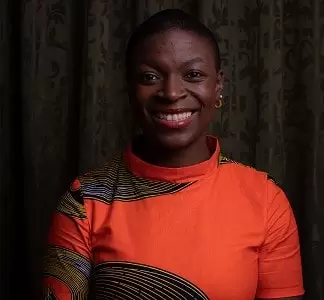
Kyana has a Masters in Industrial Organizational Psychology from the University of Maryland, Baltimore County, she is a certified Credentialing Specialist with the Institute of Credentialing Excellence. She has 10+ plus years consulting organizations in business development, organizational restructuring, downsizing, turnover, transformative leadership, selection, assessment, entry level, promotions and executives assessments, exam management and recruitment.
As the owner of Leverage Assessments, a City Certified MWBE firm, she leads a diverse team of psychometricians, clinicians, and technologists. The company has serviced clients in a variety of states across the Americas and abroad; to include, New York, Ohio, Oregon, Illinois, Singapore and India. Leverage Assessments solutions are scalable for companies small, large and in between.
- Leverage Assessments Website
About the Podcast
The Lead with Levity podcast is a show for leaders who care deeply about what makes/breaks the employee experience. Our guests are dynamic researchers, practitioners, consultants, and business leaders. We cover foundational elements that are needed to avoid forcing the fun. We also invite lively managers who lead with levity to show us how it’s done. Thanks for joining us on this journey.
